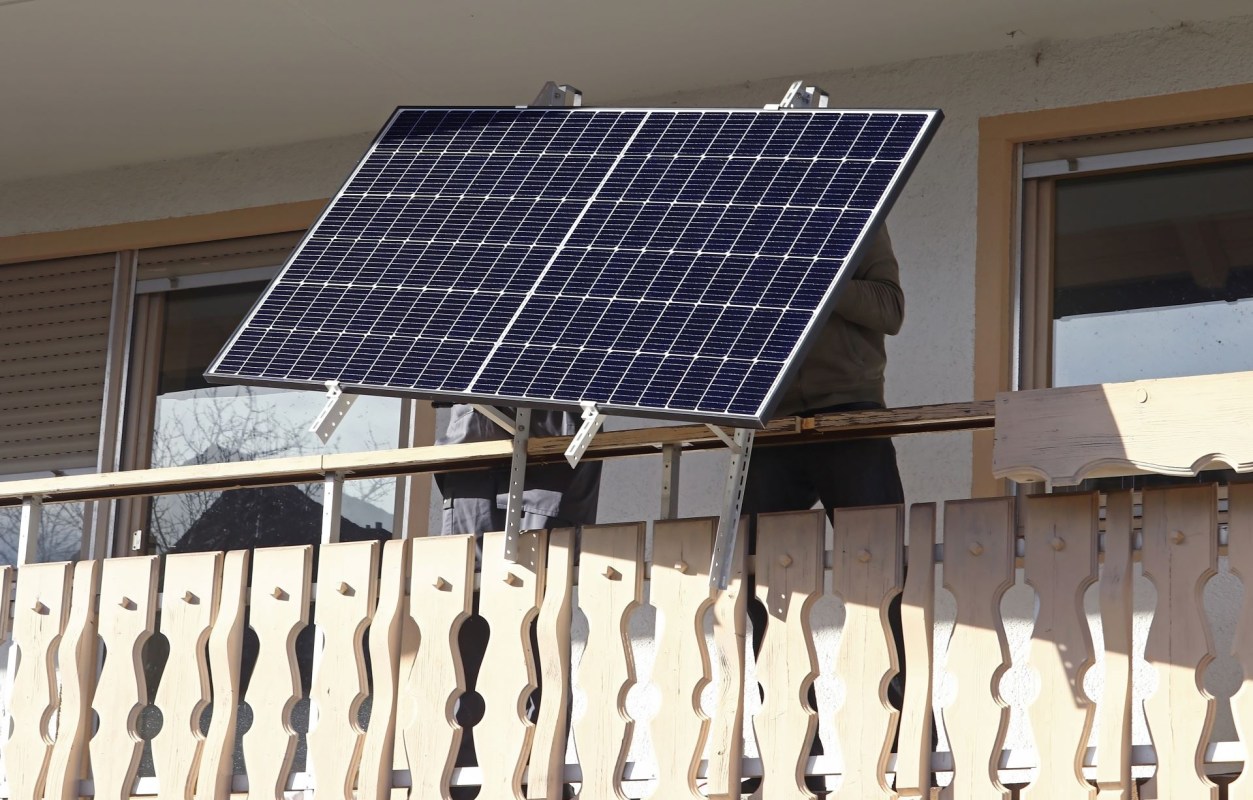According to Anthropocene Magazine, Australian researcher Binesh Puthen Veettil recently announced that he and his team have found a way to make solar panel recycling cheaper and easier: throwing it in a microwave.
In the past, solar panels have been difficult to recycle, Anthropocene Magazine explained. They contain valuable materials that could be used to make new panels, but those materials are difficult to separate.
For example, the glass of the panels has a plastic coating fused to its surface to protect it, and that coating is very hard to remove. Meanwhile, the silicon in the panels needs to be heated to over 1650 degrees Fahrenheit during manufacturing.
Anthropocene Magazine reported that most solar panels are currently thrown out instead of being recycled.
But Veettil's new method could change that and improve panel manufacturing. Veettil and his team used an ordinary kitchen microwave with added heat-proofing to protect it from the high temperatures needed to process solar panels.
They then used the microwave to selectively heat the panel's silicon components while leaving the glass, plastic, and aluminum intact. The method was successful and much more energy-efficient than using a traditional furnace to do the same.
Not only that, but the process also softened the plastic coating on the panel's glass. This allowed the plastic to be removed easily so the team could salvage the glass, too.
"Until now it made economic sense to just dump the panels in the landfill," Veettil said in a press release in April. "In the rare instances when they are recycled, you crush the panels, heat them to about [2,550 degrees Fahrenheit] and wash them with chemicals to remove the plastic — a highly energy-demanding process."
Veettil's new process will be cheaper, making solar panel recycling possible on a larger scale. This is great news for manufacturing companies and buyers since it will keep solar panel costs down.
It's also a win for the environment. Until now, discarded solar panels sat in landfills, leaking lead and other chemicals which could pollute the surrounding soil, Anthropocene Magazine explained. They were still less polluting than other sources of energy like oil and coal but with drawbacks.
In the future, they'll be recycled more, making them an even more eco-friendly energy source than they already are.
Veettil's team has a patent pending for their process and is currently preparing it for commercial use.
Join our free newsletter for weekly updates on the coolest innovations improving our lives and saving our planet.









